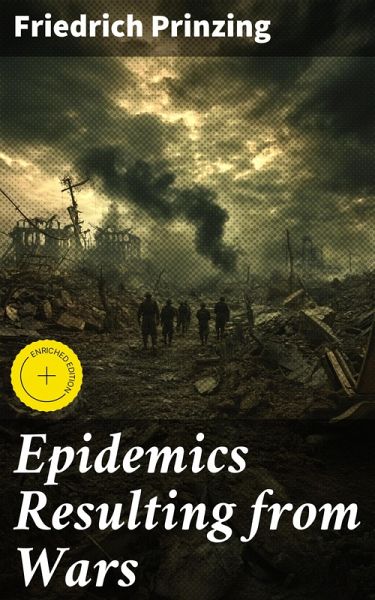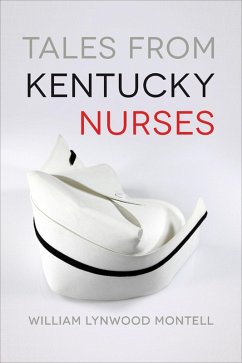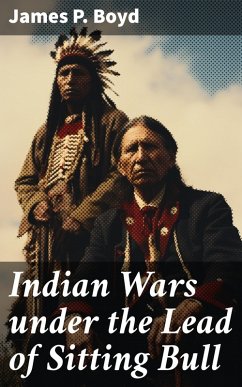
Epidemics Resulting from Wars (eBook, ePUB)
Enriched edition. Unveiling the Deadly Consequences of Warfare Through Epidemics
Kommentar: Burgess, Connor / Redaktion: Good Press; Westergaard, Harald
Versandkostenfrei!
Sofort per Download lieferbar
1,99 €
inkl. MwSt.
Weitere Ausgaben:

PAYBACK Punkte
0 °P sammeln!
In "Epidemics Resulting from Wars," Friedrich Prinzing meticulously explores the profound interplay between warfare and the outbreak of infectious diseases throughout history. Utilizing a blend of historical analysis and epidemiological insights, Prinzing weaves a narrative that highlights how the chaos of war not only devastates landscapes and societies but also catalyzes the conditions for epidemic crises. His detailed examination reveals the often-overlooked correlation between military mobilization, troop movements, and the subsequent spread of pathogens, presenting a clarion call for unde...
In "Epidemics Resulting from Wars," Friedrich Prinzing meticulously explores the profound interplay between warfare and the outbreak of infectious diseases throughout history. Utilizing a blend of historical analysis and epidemiological insights, Prinzing weaves a narrative that highlights how the chaos of war not only devastates landscapes and societies but also catalyzes the conditions for epidemic crises. His detailed examination reveals the often-overlooked correlation between military mobilization, troop movements, and the subsequent spread of pathogens, presenting a clarion call for understanding public health within the geopolitical landscape. The book's rigorous scholarship is complemented by a clear and engaging prose style, making complex ideas accessible to both specialists and general readers alike. Friedrich Prinzing is a noted historian and public health expert whose work often intersects the fields of epidemiology and social science. His deep-seated interest in the effects of socio-political conflict on public health outcomes is profoundly informed by his background in medical history and his extensive research on past pandemics. Prinzing's academic journey and firsthand encounters with the repercussions of modern conflicts have uniquely positioned him to address this critical and timely subject matter. This book is highly recommended for anyone interested in the nexus of war and public health, offering essential perspectives for scholars, policymakers, and historians. Prinzing's compelling arguments and thorough research provide invaluable insights into the ways that pandemics arise from the turmoil of conflicts, underscoring the importance of considering health implications in war strategy and humanitarian efforts. In this enriched edition, we have carefully created added value for your reading experience: - Hand-picked Memorable Quotes shine a spotlight on moments of literary brilliance. - Interactive footnotes clarify unusual references, historical allusions, and archaic phrases for an effortless, more informed read.
Dieser Download kann aus rechtlichen Gründen nur mit Rechnungsadresse in A, B, BG, CY, CZ, D, DK, EW, E, FIN, F, GR, H, IRL, I, LT, L, LR, M, NL, PL, P, R, S, SLO, SK ausgeliefert werden.













